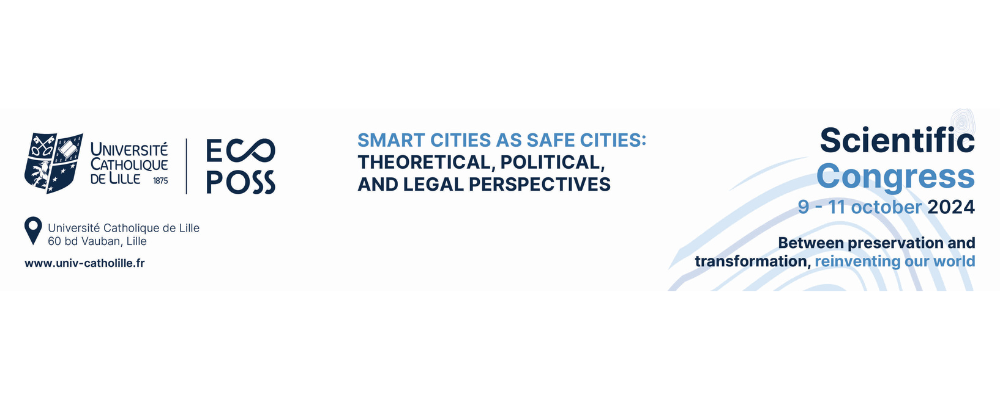Call for papers
Theoretical, political, and legal perspectives
ARGUMENTARY
The late 2000s marked a pivotal era in urban transformation, introducing the "smart city" concept into the mainstream against a backdrop of technological proliferation and economic challenges (Courmont and Le Galès 2019; Green 2022). As smart cities continue to evolve, driven by digital innovations, they promise urban “paradises” of efficiency and connectivity (Picon, 2015). Yet, this vision, predominantlychampioned by technologygiants, has sparkeddebates about its techno-deterministicutopia and implications for privacy, social control, and governance (Anthopoulos2017;Akbari 2021).
At the same time, Antoine Courmont (2018) points out, the early concept of the "Smart City" stumbled in the 2010s due to the technological challenges companiesfaced in grapplingwith the complexoperations of urbanenvironments, whichprovedresistant to simple quantification through data and algorithms. In response to these challenges, the notion of the "Safe City" wasintroduced, aiming to addressthese issues (Tesquet2020;Rigouste 2022). Companies like Thales, renowned for their expertise in aerospace, defense, security, and transportation, began to applytheir surveillance technologies in citiessuch as Mexico and Nice.
We, therefore, invite scholars from the fields of philosophy, political science, law, urban studies, and media and communication studies to submit proposals that address one or more of the following:
-
Theoretical/philosophical implications of surveillance, safety, and security in smart cities.
-
The politics surrounding data ownership and its distribution in the digital urban landscape.
-
Legal stakes and infrastructures of smart city governance.
-
Media representations of and public discourses on smart cities, particularly as safe and/or secure.
-
Governance models in smart cities: operational dynamics and citizen engagement.
-
Influence of diverse political regimes on smart city frameworks, emphasizing the intersection of technology, governance, and political ideologies.
-
Impact of surveillance technologies in smart cities on political authority, social dynamics, and individual liberties. This can include examining the lived experience of individuals living in smart/safe cities.
-
Comparative insights and case studies from various regions, including perspectives from the Global South.
- Ethical, social, and cultural considerations in the deployment of smart city technologies, with a focus on their unintended consequences, such as the exacerbation of social inequalities and privacy concerns.
SUBMISSION GUIDELINES
Please send your proposals, in English or French, of no longer than 500 words, accompanied by a short biographical note, through this form no later than May 31st, 2024
IMPORTANT DATES
Deadline for submission of detailed abstracts: May 31, 2024 - extended until 17 June 2024
Notification of acceptance: 1st july 2024
|


